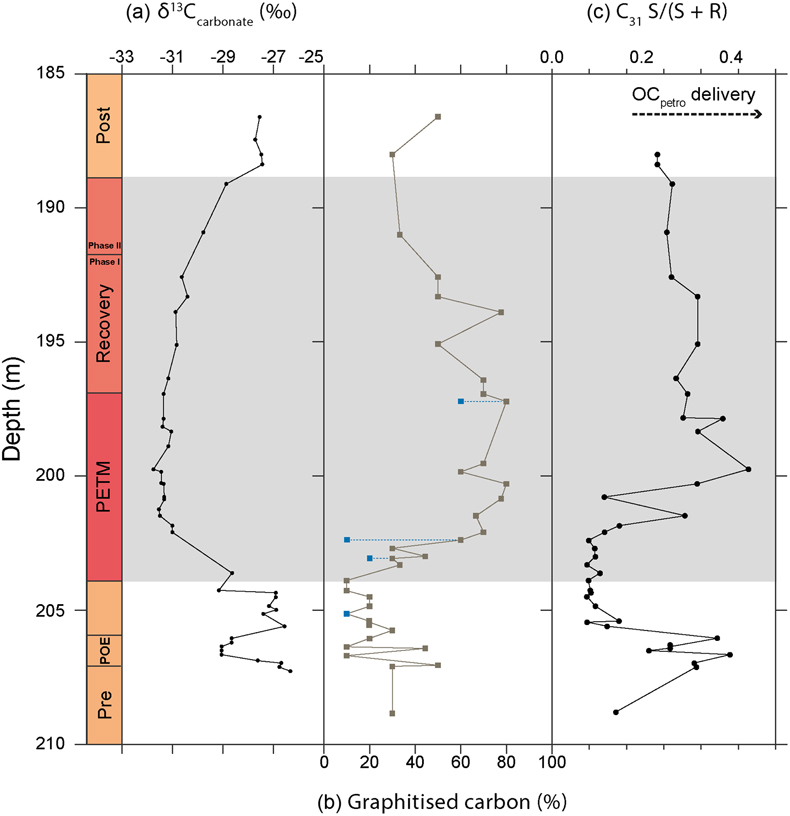This collaboration with the University of Southampton used Raman spectroscopy to investigate cores from an ancient climate event. The study was published in Geochemical Perspectives Letters.

The PETM event caused major, rapid global warming of 4-6 °C, which also released large amounts of carbon into the atmosphere. The climate change associated with the event altered hydrological cycles and may have driven erosion and degradation of petrogenic organic carbon (OCpetro), which may have been a further positive feedback in the PETM climate system.

This is the first study to use Raman spectroscopy to investigate OCpetro oxidation at the PETM. We found that there was an increased contribution of graphite during the PETM, likely caused by intensified physical erosion and enhanced OCpetro oxidation.
In areas where there is a range of OCpetro inputs, both graphitic and disordered, Raman spectroscopy appears to be a very promising tool for investigating past changes in the carbon cycle.